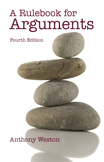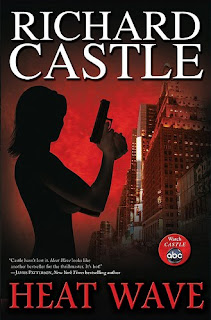Week 35: A Rulebook for Arguments and Five-Minute Marriage

A Rulebook for Arguments , by Anthony Weston This little book is recommended for 9th-graders in The Well-Trained Mind . It's a useful collection of 45 specific rules for writing or arguing correctly. It's clear and interesting, with good examples of common mistakes or good strategies. I wish I'd read it when I was in high school! Five-Minute Marriage, by Joan Aiken Joan Aiken is on my Favorite Authors list, and she was one of the few writers who could produce a really good Regency novel (Georgette Heyer is the other one that I know of). This one features Delphie Carteret, an impoverished and independent young woman with a slightly dotty mother to support who is forced to apply to her mother's estranged family for help. She is promptly dropped into an adventure featuring villainous conspiracies, imposters, a counterfeit marraige that may not be so counterfeit, and a whole pack of aggravating relations. Aiken wrote several Regency novels, including some Jane Austen spinof...





